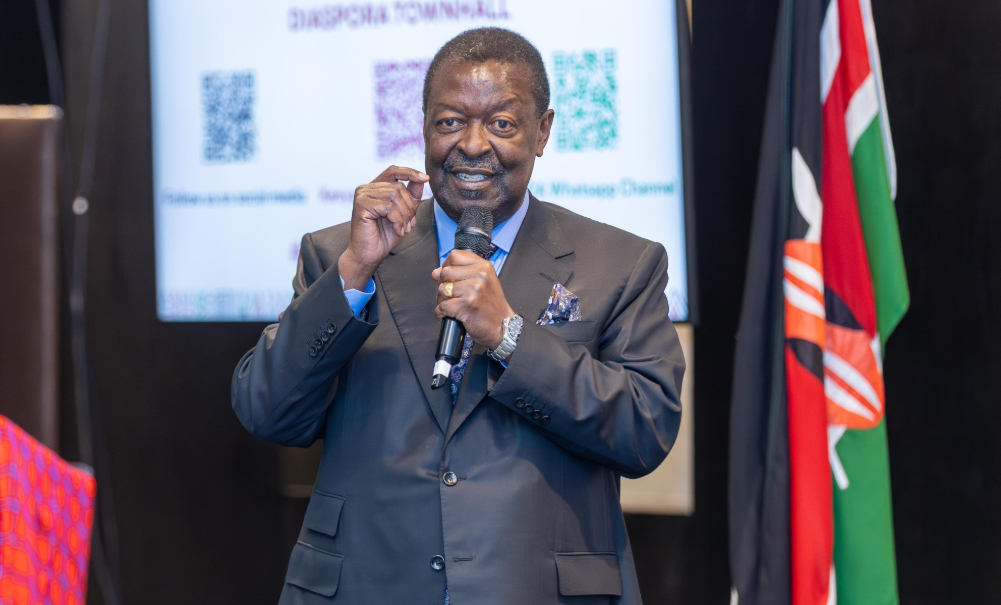

Prime Cabinet Secretary Musalia Mudavadi has come to the defense of President William Ruto, acknowledging the immense pressure the Head of State faces.
This is as he leads the country through tough economic and governance decisions.
Speaking in a public forum, Mudavadi emphasised that while Ruto actively sought the presidency and was duly elected, the burden of leadership in the current political climate is no small task.
“It is not easy to be in the space that he is in,” said Mudavadi.
“I'm not giving an excuse for him because he sought it and was granted (the mandate) by the voters. But nevertheless, I still have to try and imagine what kind of life he leads.”
In a reflective tone, Mudavadi challenged the audience to consider what legacy they would want to leave behind, likening leadership decisions to writing one’s obituary or epitaph.
An epitaph is a phrase or form of words written in memory of a deceased person, especially as an inscription on a tombstone.
“It is easier to make a fortune, but it is harder to make a difference,” Mudavadi said.
“It is easier to make the easy decisions, but harder to make decisions that have an impact.”
He warned against the temptation to pass judgment lightly, stating that many past leaders avoided hard choices, a burden now falling squarely on Ruto.
“We kicked the can down the road over the years. The road has come to an end, and President Ruto can no longer kick the can. He has to make the serious decisions,” Mudavadi said.
Mudavadi described the President as “a man in a tight corner,” noting that the moment demands not popularity but resolve.
He dismissed criticism circulating on social media platforms, calling it “Hadithi za jaba” (idle talk), and urged Kenyans to look beyond online narratives.
“He is in Kanyaga Barabara,” Mudavadi said, a phrase symbolising the heavy responsibility of walking a difficult path. “Our President has been in Kanyaga Barabara.”
According to Mudavadi, Ruto is confronted with a range of difficult decisions, including the economic reforms aimed at stabilising the country’s finances amid rising inflation and a growing public debt burden.
This includes making tough calls on budgeting, taxation and the allocation of scarce resources to ensure sustainable public spending.
At the same time, Ruto is tasked with addressing high unemployment rates, especially among the youth, by supporting job creation and social empowerment programs.
Mudavadi said that infrastructure development remains a priority, requiring careful balancing between limited funds and the urgent need for better roads, expanded electricity access, and affordable housing.
The President also faces the complex task of managing nationwide social health initiatives, such as the Social Health Authority, to guarantee equitable healthcare coverage for all Kenyans.
Furthermore, Ruto must navigate a politically charged environment characterised by ethnic diversity and opposition pressures, while working to maintain national unity and advance his administration’s agenda.













